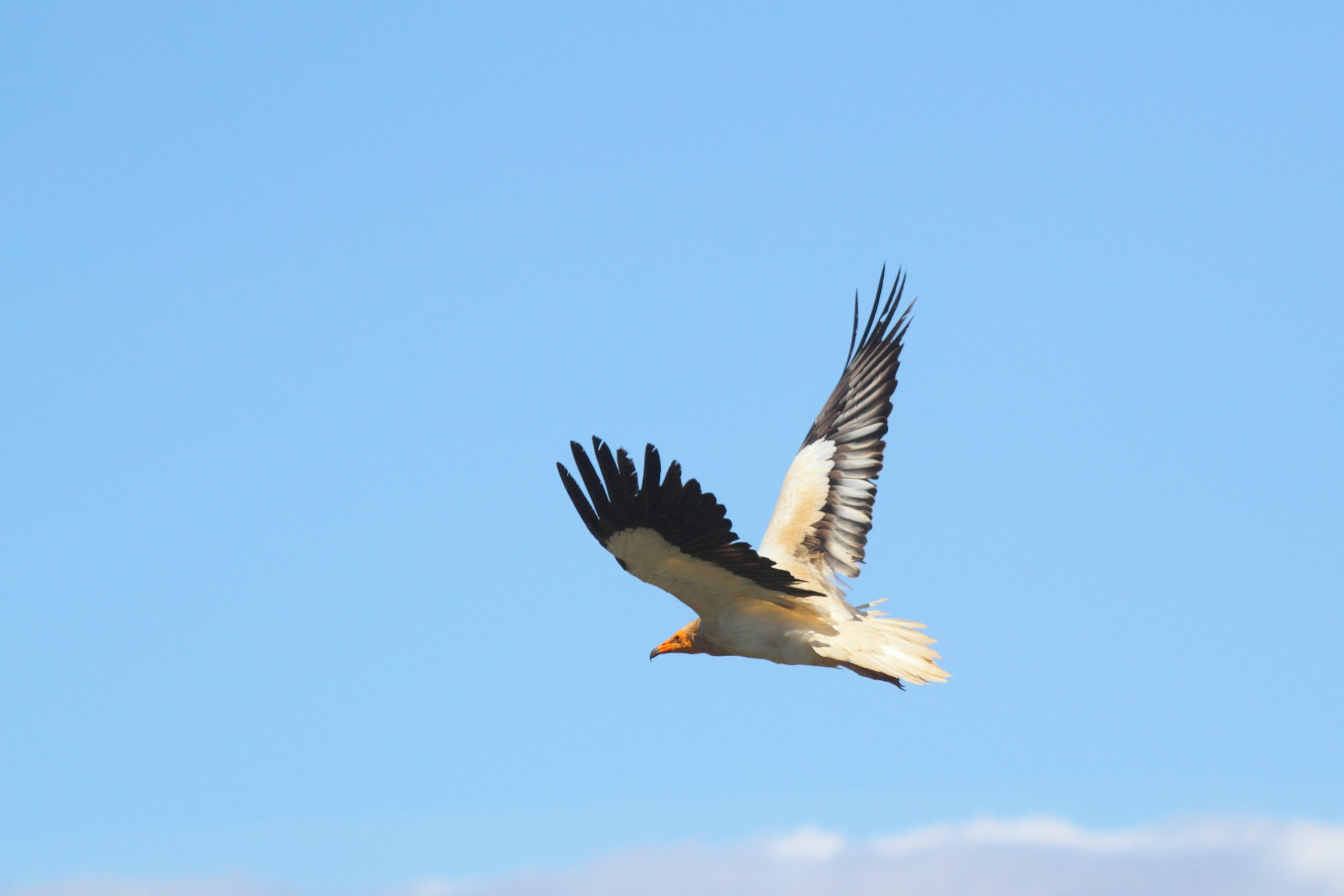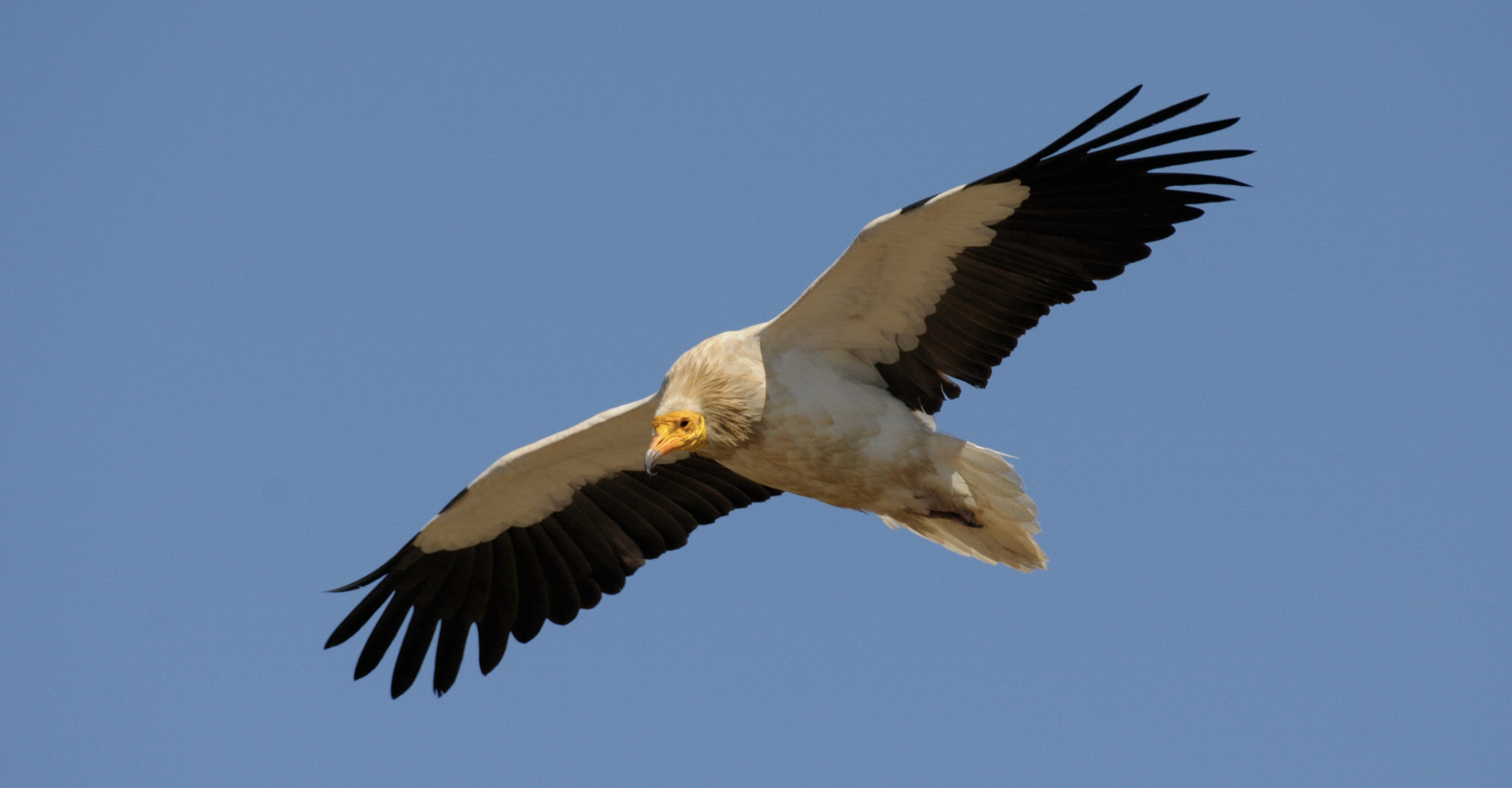
During the European Vulture Conference, leading professionals in the field of vulture conservation will come together to share the latest insights of vulture conservation and research. The conference will be Europe’s largest gathering of vulture conservationists, in the beautiful region of Algarve, Portugal, for the first four days of October.
One of the renowned experts joining us is Dr Steffen Oppel, who will be giving a keynote presentation sharing his work on Egyptian Vultures – the threats they face and what needs to be done to stabilise their population. He is the latest winner of the Marsh Award for Conservation Biology and is currently a senior conservation scientist at the RSPB Centre for Conservation Science.
So, join us at the European Vulture Conference to understand the causes of ongoing population declines in Egyptian Vultures and what strategies can save the species in the Balkans.
Ticket Registration
Contribution to the conference
Dr Steffen Oppel’s keynote presentation will be a combined talk based on two of his research areas on Egyptian Vultures – the different major threats the species face along the eastern Mediterranean flyway, and the demographic changes that are needed to stabilise the Egyptian Vulture population on the Balkans.
Egyptian Vultures are long-distance migrants and are therefore exposed to threats along their entire flyway. Their most prominent danger in the Balkans is inadvertent poisoning. Steffen studied the magnitude and geographic range of threats that affect the species along their annual migration. The threats vary across regions, from electrocution being the primary threat in Ethiopia to direct persecution in the Middle East. To save Egyptian Vultures, conservation actions should address all threats and tailor them for each region.
There are several conservation activities underway to stabilise Egyptian Vultures in the Balkans. But, it was unclear how many juveniles would need to be released to achieve a stable population. To find out, Steffen and his colleagues constructed an integrated population model to quantify the number of captive-bred birds and the changes in survival probability that would be required to achieve a neutral or positive population trend over the next ten years. The model was able to describe the decline of the population since 2006 adequately and indicated that both juvenile and adult annual survival probability was too low for a stable population.
Profile

Dr Steffen Oppel works as a senior conservation scientist at the RSPB Centre for Conservation Science to achieve effective conservation of threatened species and their habitats through evidence-based interventions in collaboration with partner organisations within the global network of BirdLife International. In his role, Steffen designs and implements robust scientific approaches to identify the causes of species’ declines and develop and test management solutions. His current work portfolio revolves around the restoration of islands through the eradication of invasive vertebrates, the conservation of seabirds on land and at sea, and the conservation of migratory birds along their flyways – including the Egyptian Vulture. Steffen has worked with partners in Bulgaria, Greece, Turkey, Albania and North Macedonia for the last ten years to save the Balkan population of Egyptian Vultures.
The European Vulture Conference
1-4 October
Algarve, Portugal

For four days in October, we will be bringing together scientists, conservationists and the public in Algarve, Portugal for an international congress on vultures. We will be looking at the latest research and conservation studies about vultures in Europe and beyond, in our first European Vulture Conference. On the last day of the conference, we will venture out and explore the local nature. The Algarve is known for its wetlands, woodlands and other habitats that are rich in biodiversity, so get ready for a fantastic day out in nature!
We received many interesting abstracts and we will announce the official programme soon. The conference will host many researchers, scientists and conservation technicians that will cover various topics on vulture conservation. So join us, for a unique opportunity to learn the latest vulture conservation findings and to experience the local wildlife with the expert guides.
Stay up to date with the latest news and announcements of the conference by following our Facebook Event Page and #Vultures2019 on Twitter, Facebook and LinkedIn.



